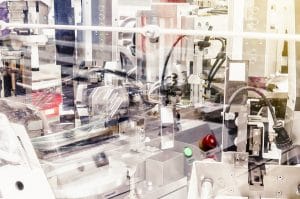 Over the last several decades, technology has advanced more rapidly than ever before, and it’s been the culmination of many different, smaller evolutions. For example, miniaturized computer processing and AI software made solutions like automated technology possible. Before that, however, the streamlining of electrical thermal management was one of the first evolutions to change the face of technology. Electrical cooling systems like heat exchangers and other custom thermal solutions made it possible for the technologies they cooled to grow more powerful and compact without sacrificing their cooling efficiency.
Over the last several decades, technology has advanced more rapidly than ever before, and it’s been the culmination of many different, smaller evolutions. For example, miniaturized computer processing and AI software made solutions like automated technology possible. Before that, however, the streamlining of electrical thermal management was one of the first evolutions to change the face of technology. Electrical cooling systems like heat exchangers and other custom thermal solutions made it possible for the technologies they cooled to grow more powerful and compact without sacrificing their cooling efficiency.
The importance of advanced cooling methods
Electrical thermal management has always been a vital concern for technology, but cooling solutions weren’t always as easily manageable. Before modern heat exchangers, companies relied on industrial air conditioners or air compressors to stop their electrical systems from overheating. When those systems were large and unwieldy, such solutions made sense. However, as technology designers aimed to make their products sleeker and more powerful, they required more efficient and reliable cooling solutions. Heat exchangers were developed as an alternative method of electrical cooling, and as such, they don’t utilize the same traditional methods. Instead, they house an eco-friendly cooling that easily absorbs waste heat, then transfers and dissipates it somewhere safe, all within a continuous loop.
The impact of heat exchangers on these methods
The principles of transferring heat that modern heat exchangers rely on are simpler and more natural than traditional cooling methods. Yet, they’re able to handle high volumes of electrical waste heat continuously, making them more than suitable for high-performance applications. Companies can maintain or improve their electrical thermal management processes using heat exchangers that require less energy, less manpower, and fewer resources to keep running. This has helped companies in virtually every industry lower costs and streamline their efficiency by placing greater focus on their electrical cooling efforts.
The growth of technology thanks to better cooling
While heat exchangers first grew popular because of the improved efficiency and energy and cost-saving benefits, their popularity has led to several other important advantages. As electrical enclosures within high-performance applications grew smaller, technology designers were able to innovate new ways of designing solutions. In many cases, applications like automated technology and AI-driven manufacturing processes have all been made possible thanks to the streamlined electrical cooling that heat exchangers provide. For more information about how heat exchangers promote more efficient technology, call Noren Thermal Solutions in Taylor, TX, at 866-936-6736.







